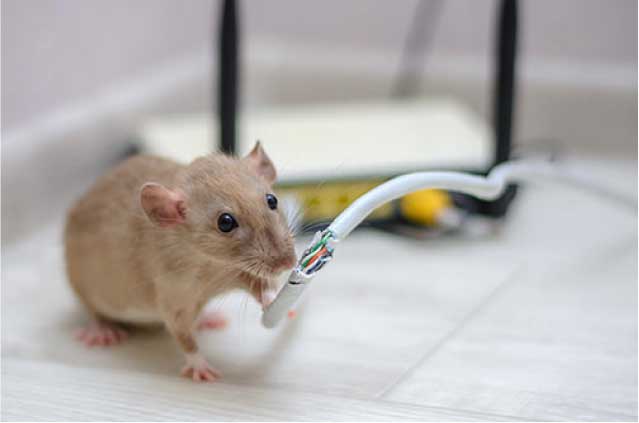Mountain cabins offer a serene and picturesque escape from the hustle and bustle of everyday life. However, these tranquil retreats can also attract unwanted guests in the form of pests. Preventing pests in mountain cabins is crucial not only for maintaining the integrity and comfort of your cabin but also for ensuring a peaceful getaway.
In this article, we'll delve into effective strategies for keeping your mountain cabin pest-free. From understanding common pest threats to implementing preventive measures, weve got you covered. Whether you own a cabin or are planning a stay, these tips will help you enjoy your mountain retreat without the nuisances of nature's intruders.

Common Pests Found in Mountain Cabins
Before diving into prevention methods, it's essential to know which pests are likely to invade your mountain cabin. Common culprits include mice, ants, spiders, and even larger animals like raccoons and bears. Each type poses unique challenges and requires specific strategies to keep them at bay.
Mice, for instance, are notorious for seeking shelter and food in cabins. They can cause structural damage and pose health risks due to the diseases they carry. Ants, on the other hand, can quickly form colonies and invade food supplies, leading to contamination.
Understanding the Attraction
Mountain cabins are particularly attractive to pests due to the abundance of natural resources and the generally undisturbed environment. The presence of food, water, and shelter makes cabins an ideal habitat for pests. Additionally, the remote location often means less human interference, allowing pests to thrive if unchecked.
Effective Prevention Strategies
To keep your mountain cabin pest-free, it's crucial to implement a combination of strategies that address both prevention and management. Here are some effective tips to help you get started:
Seal Entry Points
One of the most effective ways to prevent pests from entering your cabin is by sealing entry points. Inspect your cabin for cracks, gaps, and openings in walls, doors, and windows. Use weather stripping, caulk, and mesh to close off potential entryways. This not only keeps pests out but also helps maintain energy efficiency.
Proper Food Storage
Food is a major attractant for pests. Ensure all food items are stored in airtight containers, and regularly clean kitchen surfaces to remove crumbs and spills. Additionally, dispose of garbage promptly and store it in sealed containers away from the cabin.
Regular Maintenance and Cleaning
Maintaining a clean and well-kept cabin is essential in pest prevention. Regularly clean floors, surfaces, and corners to eliminate potential nesting sites. Trim bushes and trees around the cabin to reduce hiding spots and entry paths for pests.
Natural Pest Repellents
Consider using natural repellents such as cedar oil, which is known for its pest-repelling properties. Our article on cedar oil rodent repellents provides an in-depth comparison of various options available.
Utilizing Professional Pest Control Services
Sometimes, despite your best efforts, pests might still find their way into your cabin. In such cases, hiring professional pest control services can be a wise investment. They have the expertise and tools to effectively manage and prevent infestations. For more insights on pest control in rentals, check out keeping your Airbnb pest-free.
Choosing the Right Service
When selecting a pest control service, ensure they are licensed and have experience dealing with mountain cabin environments. It's also beneficial to find a service that uses eco-friendly products to minimize the impact on the natural surroundings.

FAQs
How often should I inspect my cabin for pests?
Regular inspections are vital. Aim to check for signs of pests at least once every season, or more frequently if you've had previous issues.
Are natural repellents effective against all types of pests?
While natural repellents can be effective, they may not work for all pest types. It's important to identify the specific pests you're dealing with and choose appropriate repellents or seek professional help.
What should I do if I find a pest infestation?
If you discover an infestation, act quickly. Remove food sources, seal entry points, and consider hiring a professional pest control service to effectively address the issue.
By following these guidelines and being proactive, you can enjoy your mountain cabin without the worry of pests. Remember, prevention is key, and a little effort goes a long way in safeguarding your haven in the mountains.
